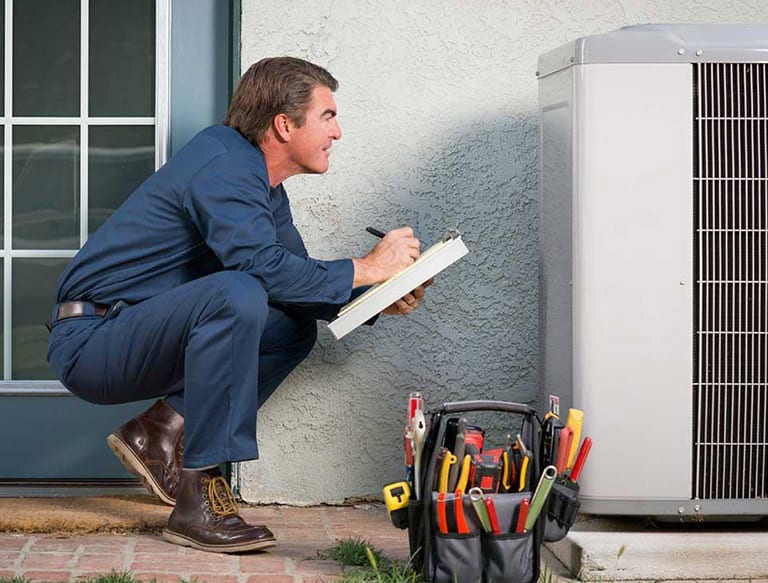Are More Expensive HVAC Filters Better for Your Home? Exploring Air Quality Solutions
When it comes to improving indoor air quality, one of the most common steps homeowners take is upgrading their HVAC (Heating, Ventilation, and Air Conditioning) filters. However, the question of whether more expensive HVAC filters are better for your home isn’t always straightforward. In this article, we will delve into this question and also explore an alternative solution for enhancing your home’s air quality: whole-house air purifiers.
Understanding HVAC Filters
Before discussing the cost-effectiveness of different HVAC filters, it’s crucial to understand their primary function. HVAC filters are designed to capture particles and pollutants in the air as it circulates through your home’s heating and cooling system. These filters come in various materials and designs, ranging from basic fiberglass filters to more advanced options like pleated, HEPA (High-Efficiency Particulate Air), and electrostatic filters.
The Cost Factor
The cost of HVAC filters varies significantly, with basic fiberglass filters being the most affordable and HEPA filters being among the most expensive. It’s a common belief that a higher price tag equates to better filtration and cleaner air. While this is generally true to some extent, it’s not the whole story.
Filter Efficiency
The efficiency of an HVAC filter primarily depends on its MERV (Minimum Efficiency Reporting Value) rating. MERV ratings range from 1 to 20, with higher numbers indicating better filtration capabilities. Basic fiberglass filters typically have lower MERV ratings (around 1-4) and may only capture larger particles like dust and pet hair. In contrast, HEPA filters have MERV ratings of 17-20, capable of trapping tiny particles like allergens, bacteria, and viruses.
Choosing the Right Filter
Selecting the right HVAC filter for your home involves considering your specific needs. If you have family members with allergies or respiratory conditions, a higher MERV-rated filter, such as a HEPA filter, can be a worthwhile investment. However, if your primary concern is maintaining your HVAC system’s efficiency and preventing larger debris from causing damage, a mid-range filter with a MERV rating of 8-12 may suffice.
Whole-House Air Purifiers: An Alternative Solution
While upgrading your HVAC filter is a step in the right direction for improving indoor air quality, it may not address all of your needs. This is where whole-house air purifiers come into play. These systems work alongside your HVAC system to provide comprehensive air cleaning throughout your home.
Benefits of Whole-House Air Purifiers:
- Enhanced Filtration: Whole-house air purifiers often use HEPA or HEPA-like filters with high MERV ratings, ensuring the removal of a wide range of contaminants, including allergens, mold spores, and volatile organic compounds (VOCs).
- Continuous Operation: Unlike HVAC filters that only filter air when the system is running, whole-house air purifiers operate 24/7, ensuring consistent air quality improvement.
- Targeted Air Cleaning: Air purifiers can be strategically placed in areas prone to high levels of pollutants, such as the living room or bedroom, providing more focused filtration where it’s needed most.
- Reduced Strain on HVAC: By offloading some of the air cleaning duties onto a dedicated purifier, your HVAC system may experience less wear and tear, potentially extending its lifespan.
- Customizable Features: Many whole-house air purifiers come with features like programmable timers, air quality sensors, and multiple fan speeds, allowing you to tailor their operation to your preferences.
In the debate of whether a more expensive HVAC filter is better for your home, the answer depends on your specific requirements and budget. Higher-priced filters with superior filtration capabilities can be a valuable investment for those seeking enhanced air quality. However, it’s essential to strike a balance between filtration efficiency and cost-effectiveness.
Moreover, whole-house air purifiers offer a complementary solution to HVAC filters. They provide continuous air cleaning, targeted filtration, and customizable features that can significantly improve indoor air quality. When deciding how to improve the air quality in your home, consider your unique needs, preferences, and budget to make an informed choice that ensures the health and comfort of your household.
Riverside Heating and Air Conditioning can help you make an informed choice on purifying your home or business’s air. Schedule an appointment with us below, or visit our contact page for more options on how to get in touch!

